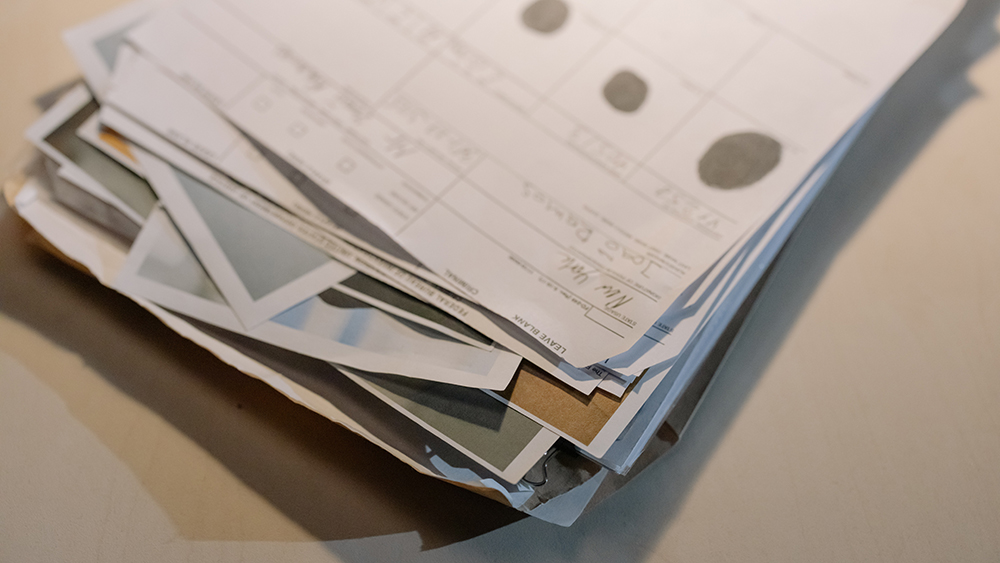Debt Collection Practices in Italy
Table of Contents

Italy, with its rich history, vibrant culture, and strong economy, presents a unique set of challenges when it comes to debt collection. The idiosyncrasies of Italian legislation and cultural nuances play a significant role in debt recovery processes. In such a scenario, understanding the local landscape and leveraging expert support becomes crucial for successful debt collection.
That’s where Expert Planet comes into play – connecting businesses with a pool of international B2B debt collection firms and experts capable of maneuvering through the complex terrain of Italian debt recovery.
Italy-Specific Rules and Cultural Challenges
Italy’s legal framework, influenced by its civil law system, is robust and meticulous. When it comes to debt collection, Italy has specific rules in place, such as the ‘Decreto Ingiuntivo’, a judicial procedure that allows creditors to obtain a payment order swiftly if the debt is well-documented. Conversely, cultural challenges, such as the Italian approach to business dealings which often emphasizes personal relationships and negotiations, pose unique challenges that require a nuanced understanding and strategy.
To efficiently handle debt collection in Italy, it is imperative to be familiar with both the EU directives on late payment and local Italian regulations. The EU Late Payment Directive, for example, aims to ensure prompt payment for businesses, mandating interest and compensation for collection costs in case of late payments across the European Union. However, applying these rules within the context of the Italian legal system necessitates a specialized approach.
EU Directives and Their Application in Italy
The EU Late Payment Directive plays a significant role in debt collection across the European Union, including Italy. This directive aims to ensure prompt payment for businesses by mandating interest and compensation for collection costs in case of late payments. While the directive provides a framework for timely payments, its application within the Italian legal context requires a specialized approach. This is to ensure compliance with both EU-wide regulations and local Italian laws, highlighting the need for expertise in navigating these regulatory landscapes.
Understand the Directive’s Objectives and Requirements
The Late Payment Directive aims to ensure that businesses, especially SMEs, receive payments for their invoices on time to protect them from the detrimental effects of late payments, such as disrupted cash flows and potential bankruptcy. Understanding the objectives and specific requirements of the directive is the first step in incorporating it into your business operations.
Implement Strict Payment Terms
To comply with the directive, it’s essential to establish clear payment deadlines in your contracts. The directive stipulates that payments for goods and services should be made within 60 days unless otherwise agreed upon, provided it is not grossly unfair to the creditor. For transactions involving public authorities, the payment period should not exceed 30 days, with some exceptions allowing up to 60 days.
Charge Interest for Late Payments
A key provision of the directive is the entitlement for businesses to charge interest on late payments. This acts as a deterrent against late payments and compensates creditors for the delay. Ensure that your invoices and contracts clearly indicate the interest rate applicable for late payments, in line with the directive’s guidelines.
Claim Compensation for Recovery Costs
The directive allows businesses to claim compensation for costs incurred in recovering late payments, including expenses related to reminders, collection, and legal actions. Maintaining detailed records of all related costs is crucial to support your claims.
Educate Your Team and Partners
Inform your team about the Late Payment Directive and its significance for your business. Training for staff responsible for billing, collections, and contract management is essential. Additionally, communicating your adherence to the directive with your partners and clients sets clear expectations from the beginning.
Monitor and Review Compliance
Regularly reviewing your business practices and contracts for compliance with the directive is vital. This may involve updating your terms and conditions, invoicing procedures, and contract templates to ensure full leverage of the protections offered by the directive.
Leverage the Directive for Cross-Border Transactions
Applying the directive’s provisions can also improve your competitiveness in the EU market, particularly for cross-border trade. Ensure that your contracts with partners in different EU countries reflect the directive’s terms, providing a uniform approach to payment terms and penalties for late payments.
By integrating the Late Payment Directive into your business practices, you can enhance your cash flow, reduce the administrative and financial burdens of late payments, and improve your overall competitiveness in the European market. This approach aligns with the expert strategies for navigating the intricacies of debt collection in Italy, ensuring that your business is well-equipped to handle the challenges of late payments within the Italian and broader European context.
Expert Planet: Your Bridge to International Debt Recovery Experts
The team at Expert Planet understands the intricacies of international debt collection, particularly within Italy. With our platform brimming with seasoned experts, we can handle any case of debt collection, applying our deep knowledge of local laws and regulations and adapting tactics to the Italian business culture.
We connect you with experts who are proficient in dealing with local government bodies, such as the ‘Camera di Commercio’ (Chamber of Commerce) and other regulatory authorities, ensuring compliance with all legal requirements. Whether dealing with ‘Partita IVA’ (VAT number) intricacies or navigating through Italian courts, our experts are equipped to tackle any obstacle effectively.
Common Debt Collection Practices in Italy
Debt collection in Italy involves a combination of extrajudicial (out-of-court) and judicial (court) processes. Here are some common practices:
Extrajudicial Debt Collection
- Out-of-Court Procedures: Initially, creditors attempt to recover debts through out-of-court procedures, which involve contacting the debtor to amicably settle the debt. This step includes gathering all necessary information about the claim, sending written demand letters, and making phone calls to request payment.
- Payment Arrangements: Creditors may agree to a payment arrangement with the debtor, which can be beneficial as it acknowledges the debt and can be useful if legal action is later required.
- Formal Notices: If initial reminders fail, a formal notice may be sent, which has legal implications such as suspending credit regulation and establishing the start of default interest.
- Assisted Negotiation (ADR): Before proceeding to court, it is mandatory in Italy to attempt assisted negotiation for claims not exceeding a certain amount. This involves inviting the debtor to negotiate and can be a cost-effective solution.
Judicial Debt Collection
- Solvency Check: Before initiating court proceedings, it is advisable to check the debtor’s solvency status to ensure there is a reasonable likelihood of recovering the debt.
- Order for Payment (Ingiunzione di pagamento): This is a judicial procedure where the creditor can request a provisionally enforceable judgment from the court without the debtor’s involvement. The debtor has a limited time to respond, and if they do, ordinary civil proceedings may commenc.
- Ordinary Civil Proceedings: If the debtor disputes the claim or if an agreement cannot be reached, ordinary civil proceedings can be initiated. This involves justifying and substantiating the claim with several court hearings.
- Enforcement Proceedings: If a debtor fails to comply with a payment order, creditors can commence enforcement proceedings to recover the debt through measures such as asset seizure.
General Considerations
- Statute of Limitations: Attention must be paid to the statute of limitations for the claim, as older claims may become time-barred and uncollectible.
- Cultural Aspects: Clear, respectful, and constant dialogue with the debtor is crucial, as effective negotiation can lead to successful debt recovery.
- Legal Representation: Involving a lawyer can be decisive, especially in out-of-court procedures, as they can guide through the legal intricacies and ensure compliance with Italian laws.
Cultural Challenges
- Late Payment Culture: Italian businesses often have long payment terms, and it is not unusual for payments to be delayed beyond the maximum period of 30 or 60 days.
- Economic Environment: The economic climate in Italy, including high public debt and inflation, can increase credit risk and affect debt recovery efforts.
The Expert Planet Edge in Italian Debt Collection
Why should businesses choose Expert Planet when facing debt recovery issues in Italy? Here are compelling reasons:
Local Insights: Our experts possess localized knowledge, a decisive factor in grasping the nuances of Italian debt collection laws and customs.
Strategic Approach: Understanding that each case is unique, we tailor our strategies to fit the specific circumstances of your debt collection needs in Italy.
Cross-Border Expertise: Italy is part of the EU, and our experts are adept at handling cases that involve cross-border transactions and EU-wide regulatory frameworks.
Ethical Practices: We believe in maintaining the utmost professionalism and ethical standards in all our collection practices, promoting fair and respectful treatment of debtors.
When it comes to debt collection in Italy, clear communication, diplomatic negotiation, and strategic legal action are paramount for success. With Expert Planet, you gain access to unparalleled expertise that embraces the challenge of recovering your dues while preserving business relationships.
By leveraging our global pool of professionals, you can navigate the complex world of debt collection in Italy with confidence. Partner with us at Expert Planet and experience seamless, efficient, and effective debt recovery solutions tailored to your business needs.
A successful debt collection entrustment case in Italy
This case belongs to our debt collection entrustment services for a debt amounting to USD 136K. The creditor, seeking a resolution, entrusted Expert Planet to negotiate with the debtor. The creditor’s initial request was to secure 50% of the debt upfront, with the remainder to be paid through monthly installments.
Marco from Expert Planet promptly sent a payment demand letter to the debtor upon receiving the case. The debtor responded with a proposal to repay $110K in installments of $11K per month, citing defective goods and a bad economic situation. The creditor found this proposal unacceptable since the debtor didn’t notify them defective goods upon receipt and provided no evidence for the claim.
The creditor Insisted on a proposal covering the full debt of $136K and a more reasonable installment plan, Marco’s team engaged in negotiations with the debtor once again. Despite the team’s efforts, the debtor’s second proposal still fell short, offering a full debt payment of $136K but with an initial installment of $15K.
Acknowledging Marco’s efforts, here we must speak highly of our customer service personnel, Miss Kelly Song. She kept both sides in good communication during the whole process. Kelly asked the Expert to stand firm with the creditor’s requirements and push the debtor to improve their proposal.
Marco negotiated with the debtor again. Consequently, the creditor agreed to make some concessions, allowing the first repayment should be more than $15K but not necessarily 50%. After intense negotiations, Marco successfully persuaded the debtor to increase the first two installments to $20.5K each.
Thanks to the combined efforts of Expert Marco and our dedicated service representative, Miss Kelly, the creditor eventually accepted the third repayment proposal. The first installment of $20.5K was received at the end of last December.
How to Collect a Debt in Italy

Extrajudicial Route: Begin with out-of-court procedures to amicably settle the debt. This involves gathering all necessary information about the claim, sending written demand letters, making phone calls to request payment, and possibly agreeing to a payment arrangement with the debtor. This step is crucial as it often resolves the issue without needing to resort to judicial recovery, saving time and money.
Judicial Route: If the extrajudicial route fails, consider judicial proceedings. Before initiating court action, verify the debtor’s solvency to ensure there’s a reasonable likelihood of recovering the debt. Court actions can include the ‘Order for Payment’ (Ingiunzione di pagamento) procedure, where the creditor can request a provisionally enforceable judgment without the debtor’s involvement. If the debtor disputes the claim or fails to pay, enforcement proceedings may commence.
Assisted Negotiation (ADR): Before proceeding to court, it’s mandatory in Italy to attempt assisted negotiation for claims not exceeding a certain amount. This involves inviting the debtor to negotiate, which can be a cost-effective solution[1].






